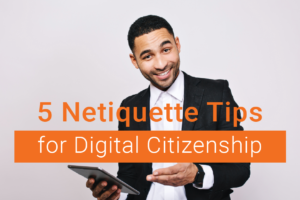Money Wit’s top 5 tips to manage your money in tough times
Over the past year and a half, we have all been overcome with uncertainty – especially around our financial situation. At Money Wit, we believe that knowledge is the most powerful tool in managing your money. We are here to help you gain that knowledge, reduce the uncertainty and learn how to manage your money so that it does not manage you.
-
Budgeting, budgeting, budgeting!
When times get tough and money gets tight, your first point of call should be reviewing and reworking your budget.
Remember, must-have expenses cover the things that you can’t live without (a place to live, food to eat, insurance, transport, communication, savings and paying off your debts), and optional expenses cover everything else.
First, get a clear picture of your actual spending. Download your last three months’ bank statements and compare your spending to your budget. If you’ve stayed on track, great! If not, take note of the differences and edit your budget as necessary.
Now that you have a realistic view of your budget and spending, focus on your optional expenses next. Where can you cut back? What can you remove entirely? With most of us working from home, the use of food delivery apps and similar could be more frequent. This can take a large chunk out of your monthly budget and could be one of the first places to cut back. The last place to look at is your must-have expenses, but remember…
-
Don’t cancel or cut back things unnecessarily!
As much as you may need to cut down on your spending, be careful not to cut back on things that you need.
Insurance, especially medical cover, is vitally important in times like these. With all of the uncertainty around us, having some form of cover helps you to avoid any additional and unexpected stress and costs. If you are unable to afford your insurance, do some research and then have a chat with your broker or financial adviser about how you can reduce this amount while still retaining the most important cover. Don’t make overly drastic future decisions based on present circumstances – there will be an option available that meets your needs and your price point.
-
Now, where are you saving money and what can you do with it?
Now that you have reviewed and reworked your budget, look at where you are saving money and where you can put those savings to good use.
The first thing to do when you have extra money is to see if you can either add it to your savings or use it to assist with debt repayments. We are all for the ‘work hard, play hard’ mindset – you want to (and should) use your hard-earned money to treat yourself where you can. However, in times like these, we need to remember our priorities. Set yourself a goal – whether it be saving a certain amount or paying off some part of your debt – and use that as motivation. Once you’ve reached your goal, treat yourself to something new – but remember to make sure that it fits into your budget!
-
How to manage your debt
If you are in a position where you can’t meet your debt obligations, you can speak to your service provider about the options available, such as lowering your repayments for a few months, or you can look into a payment holiday. Just a word of caution – this is usually used as a last resort. Make sure that you have first exhausted all other options and cut back everywhere else that you can.
Oftentimes these options will have additional costs attached, and you could end up postponing the difficult situation rather than finding a solution for it. If this is the route that you need to take, make sure that you have a clear understanding of all of the terms and conditions and make an informed decision on what will be the best move for you.
Another major part of managing your debt is being aware of how many credit facilities you currently have open. Before you open a new store account or credit card or take out a new loan, take the time to look at other available options. Be careful to not add more debt pressure than necessary, and always double-check interest and administrative costs.
-
The danger of online shopping and telemarketing
Everyone is looking at how they can make extra money in these uncertain times, including retailers and service providers. The temptation to give in to once-off sales and offers can be huge, but it could also put you in a bad situation financially.
The best way to manage this is to take a few days (or at the least, a few hours) to think about the purchase. Is this really something that you need? Could you get something similar for a better price? How is it going to affect your budget?
Remember, having the money in the bank to pay for it doesn’t necessarily mean that you can afford it. Affordability is about whether or not you have the budget for it, not the facility to pay for it. Even if you are paying an item off over a period, you need to make sure that you can afford the repayments – and interest costs – moving forward.
Breathe
After all of that, the main thing to remember is that your money is just that – it’s yours. Take the time to understand your spending habits and plan. With a little help, you can take control of your money and be financially savvy.
For more information on how to manage your personal finances, you can find our short courses online through Chartall Business College. Nola Rae, author of Money Wit: Becoming Financially Savvy, covers topics including understanding personal taxation basics, saving and investing, credit and debt and much more!
For weekly tips, follow us on Instagram at @nolasmoneywit.



